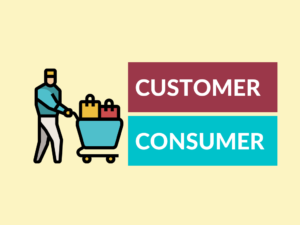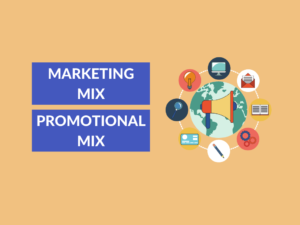What is a Customer?
A customer refers to an individual or entity who purchases a product or service from a business. They are the direct recipients of the goods or services offered by a company.
Examples of Customers:
- An individual buying groceries from a supermarket.
- A company hiring a web design agency to create their website.
Uses of Customers:
- Customers provide revenue and profits to businesses, allowing them to sustain and grow.
- They provide valuable feedback and insights into the quality and satisfaction of products/services.
What is a Consumer?
A consumer, on the other hand, is the ultimate user or beneficiary of a product or service. They may or may not be the ones directly purchasing it.
Examples of Consumers:
- A parent buying toys for their children.
- A company purchasing software for its employees to use.
Uses of Consumers:
- Consumers drive demand for goods and services, shaping the market.
- They play a crucial role in influencing the success or failure of a product/service.
Differences Between Customers and Consumers
| Difference Area | Customer | Consumer |
|---|---|---|
| Nature | Can be an individual or an organization. | Can be an individual or an organization. |
| Direct Interactions | Customers engage with the business directly through purchasing decisions and interactions with sales and customer support. | Consumers may not directly interact with the business; they mainly interact with the purchased product/service. |
| Purchasing Decision | Customers have the power to make purchasing decisions based on their needs, preferences, and budget. | Consumers may or may not have control over the purchasing decision as it depends on various factors. |
| Usage | Customers may or may not use the product/service themselves; they might purchase it for others or for business purposes. | Consumers are the end-users who directly benefit from the product/service. |
| Feedback | Customers provide feedback to businesses based on their experiences with the product/service. | Consumers may provide feedback, but it is not always directly communicated to the business. |
| Relationship | Customers often have an ongoing relationship with the business, leading to loyalty and repeat purchases. | Consumers may or may not develop a long-term relationship with the product/service. |
| Role | Customers play a crucial role in driving revenue and sustaining the business. | Consumers influence the success or failure of a product/service by their demand. |
| Focus | Customers focus on selecting the best product/service available in the market to fulfill their needs. | Consumers focus on using the product/service to achieve their desired outcome. |
| Direct Impact | Customers directly impact the financial performance and growth of the business. | Consumers indirectly impact the financial performance of the business through their demand. |
| Marketing | Customers are the target audience of marketing campaigns to attract and retain them. | Consumers are the target audience for content and messages related to the benefits and features of a product/service. |
Conclusion:
While customers and consumers are often used interchangeably, they have distinct roles and characteristics. Customers are the ones involved in purchasing decisions and interactions with businesses, while consumers are the ultimate users or beneficiaries of the product/service. Understanding these differences can help businesses shape their marketing strategies and cater to the needs and preferences of both customers and consumers.
People Also Ask:
1. What is the difference between a customer and a consumer?
A: Customers are the ones who purchase goods or services, whereas consumers are the ultimate users or beneficiaries of those goods or services.
2. Can a customer be a consumer?
A: Yes, a customer can also be a consumer if they directly use the purchased product or service.
3. Do businesses only focus on customers?
A: No, businesses also focus on consumers as they are the ones who determine the success or failure of a product or service.
4. Are customers and consumers equally important?
A: Both customers and consumers are important for businesses, but their roles differ in terms of purchasing decisions and usage.
5. How can businesses cater to the needs of customers and consumers simultaneously?
A: By analyzing their target audience, businesses can create marketing strategies that address both the needs of customers making purchasing decisions and the desires of consumers using the product or service.




